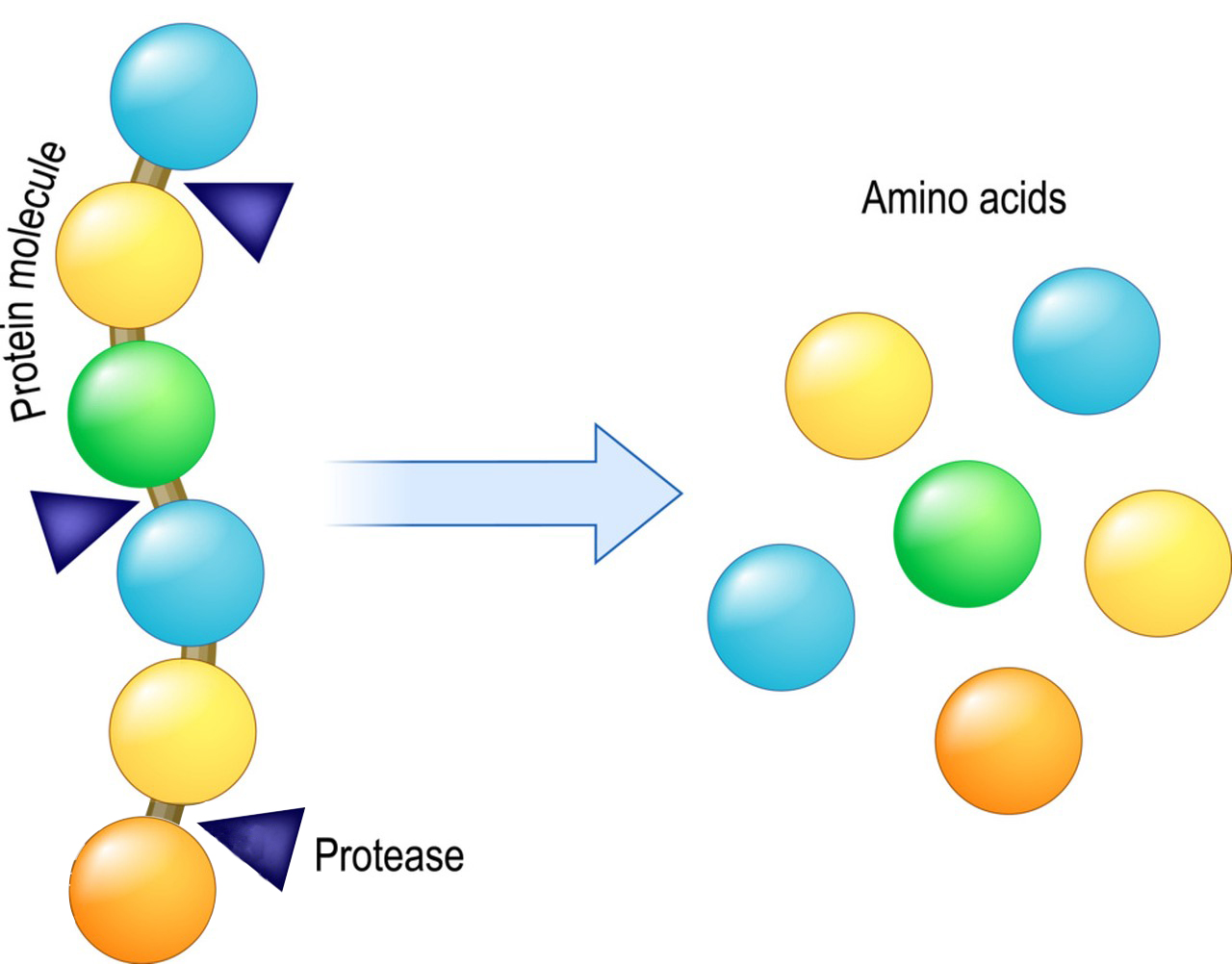Proteases, also known as peptidases or proteinases, are enzymes that play a crucial role in biological systems by catalyzing the hydrolysis of peptide bonds in proteins and peptides. This process is essential for various physiological functions, including digestion, blood clotting, immune response, and cellular regulation. Comprehensive research on proteases encompasses a wide range of topics, including their classification, structure, function, regulation, and practical applications. Here is an overview of some key aspects of protease research:
1.Classification of Proteases:
Proteases are classified based on their catalytic mechanism and structure. The major classes include serine proteases, cysteine proteases, aspartic proteases, metalloproteases, and threonine proteases. Each class has its unique active site and substrate specificity.
2.Structure and Function:
Understanding the three-dimensional structure of proteases is crucial for elucidating their function. X-ray crystallography and NMR spectroscopy have been used to determine the structures of various proteases. The active site of proteases typically contains amino acid residues critical for catalysis. Research focuses on how these residues participate in substrate binding and cleavage.

3.Mechanism of Action:
The mechanism by which proteases cleave peptide bonds involves the nucleophilic attack of the catalytic residue on the peptide bond, leading to hydrolysis. Detailed studies on this mechanism help elucidate the kinetics of protease reactions.
4.Regulation of Proteases:
Proteases are tightly regulated in cells to prevent uncontrolled proteolysis. Research investigates how proteases are synthesized, activated, and inhibited. Specific proteins known as protease inhibitors, such as serpins and metalloproteinase inhibitors, play a key role in controlling protease activity.
5.Role in Health and Disease:
Proteases are involved in various physiological processes, including digestion, blood clotting, and immune response. Dysregulation of proteases can lead to diseases like cancer, Alzheimer’s, and autoimmune disorders. Researchers study the role of proteases in health and disease, with an emphasis on potential therapeutic targets.
6.Applications:
Proteases have numerous applications in biotechnology and industry. For example, they are used in the food industry to improve texture and flavor, in the detergent industry to remove stains, and in biopharmaceutical production to cleave fusion proteins. Research explores the optimization of proteases for these applications.
7.Drug Development:
Proteases have been targeted for drug development, especially in diseases where protease activity plays a role. Protease inhibitors and modulators are designed to regulate protease activity in various pathological conditions.
8.Protease Inhibitors:
The development of protease inhibitors, such as HIV protease inhibitors, has been a significant focus in pharmaceutical research. These drugs are crucial in treating diseases caused by retroviruses and other pathogens.

9.Evolution of Proteases:
Researchers study the evolution of proteases to gain insights into the history and diversity of these enzymes in various organisms. Comparative genomics and phylogenetic analysis are used to trace the evolutionary origins of proteases.
10.Protease Engineering:
In biotechnology, researchers work on engineering proteases with specific properties, such as enhanced activity or substrate specificity. This field involves genetic manipulation and protein engineering techniques.
Comprehensive research on proteases is essential for understanding their diverse roles in biology and for developing applications and therapies related to these enzymes. Scientists continue to uncover new aspects of protease biology and apply their knowledge to a wide range of fields.
